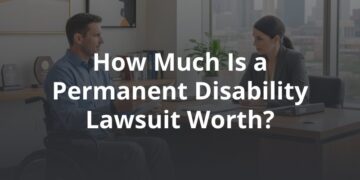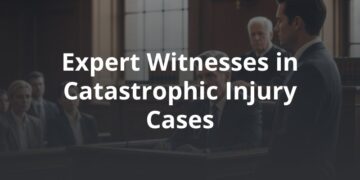A full 13 percent of commercial motor vehicle accidents are caused by fatigue, according to a study by the Federal Motor Carrier Safety Administration (FMCSA). This is no surprise, given that commercial drivers spend long hours on the road and are expected to meet demanding delivery schedules. Federal hours-of-service regulations exist to prevent the risks of fatigued driving, but drivers and their employers sometimes defy regulations for the sake of efficiency, putting the public in danger.
If you were injured in a commercial vehicle accident, you should know that proving fatigue is not often necessary to prove liability. However, it can strengthen your case, placing you in a better position to receive financial recovery for losses such as medical bills and lost earnings.
How a Car Accident Lawyer in Austin, Texas, Can Prove Fatigue
The first step to proving fatigue is finding out whether the driver is subject to state or federal hours-of-service regulations. Any driver subject to these rules will have an electronic log with documentation of time spent driving and the frequency and length of breaks. Drivers are required to take frequent rest breaks and end their shifts after a certain number of hours. If the driver was accurately logging hours and breaks, the log will reflect any violations.
There are certain exemptions from hours-of-service regulations, and some exemptions have been expanded under COVID-19 in order to facilitate the quick transit of medical equipment and other supplies deemed relevant to “emergency relief.” But if the driver is not exempt, your lawyer will be able to access the logs, as well as other relevant documentation such as the driver’s work schedule and pay stubs.
The police report can also be a valuable tool; police who respond to the scene are usually able to tell whether fatigue was a contributing factor to an accident by both interacting with the driver and accessing the electronic driving log.
If a commercial driver is not subject to hours-of-service regulations, the process of proving fatigue looks different. Instead of reviewing driving logs, your lawyer will access other documents that show work history, and obtain testimony from supervisors, coworkers, or the people the driver lives with. This will help establish whether or not the driver was acting responsibly at the time of the accident.
What to Do When a Driver’s Log Has Been Manipulated
Even when hours-of-service regulations are relevant to the case, you cannot always rely on electronic logging devices for an accurate record of the driver’s on- and off-duty hours. In fact, FVF once handled a case in which the driver had essentially not slept in five days, which ultimately cost his life and the life of another person. Our firm uncovered an inconsistency between his driving logs and the employment records, pay stubs, and witness testimony. Eventually, an influential member of the corporation that employed the driver admitted that the corporation had been training drivers to essentially commit fraud by cheating on the electronic logs.
Figuring out why or how someone behaved negligently can only bolster your case, whether it pertains to falsified logs, drug and alcohol use, or gross negligence on behalf of the employer.
How the Austin Truck Accident Lawyers at FVF Can Help
The experienced truck accident attorneys at FVF are committed to helping commercial vehicle accident victims understand their rights and options. An expert Texas 18-wheeler accident lawyer will investigate the circumstances surrounding your accident to determine whether driver fatigue played a role, providing you critical support and guidance in the process. We will also ensure that you are receiving proper medical care from qualified physicians and wield our expertise to maximize your financial recovery.
One of our first priorities is giving you the tools and knowledge to make informed decisions about your case. We provide free, no-pressure case evaluations so that you can know what to expect and what kind of financial recovery we may be able to secure on your behalf. We are here for you during this difficult time. Contact us today to schedule your free, remote case consultation and move forward with your case.








